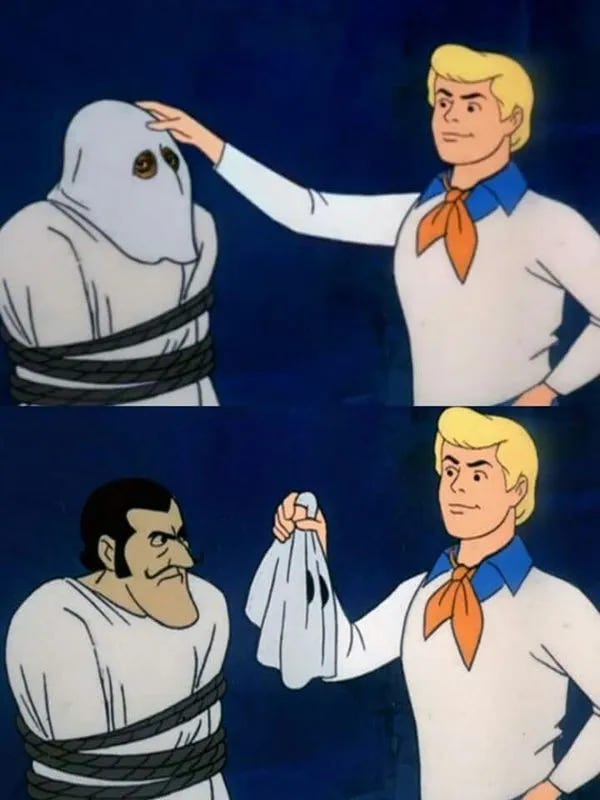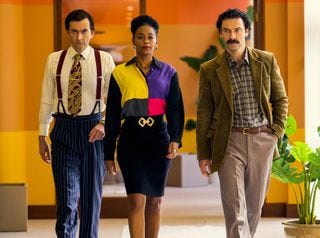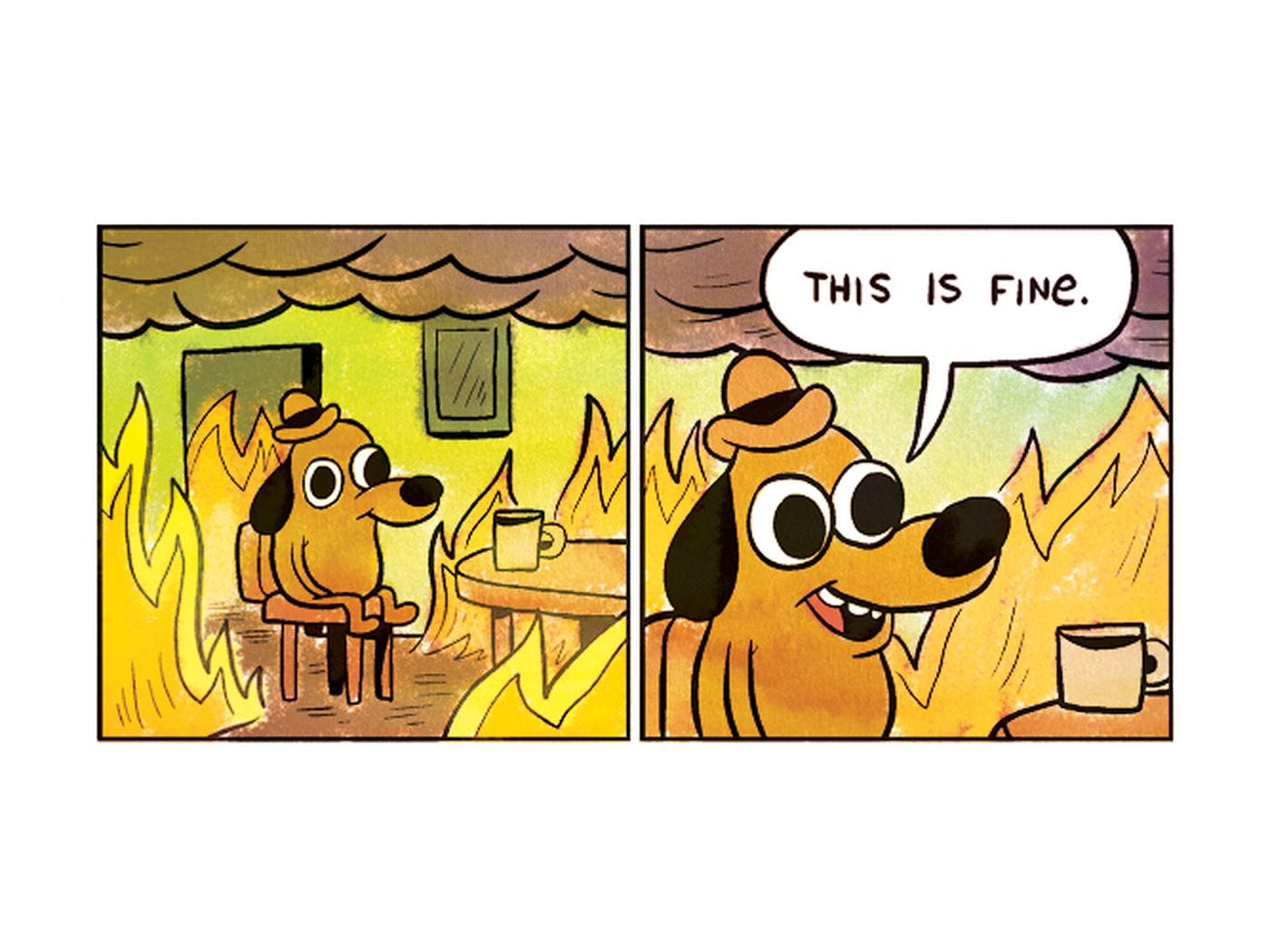We need to advocate for bigger dreams
How asking “why” and dreaming big are linked; how campaigning requires a mix of dreams and practicality; and the shift from gaining rights to restoring lost ones
One of my traits - which has annoyed people my entire life - is my insatiable urge to ask “why?” It’s probably why my dream job as a kid was to be a spy, detective, or journalist as it would satisfy my need to get to the bottom of things without triggering the exasperated sighs and “because that’s way it is” I was often met with.
Since the US election results, something has kept bopping around my head: the “why” question I’ve found ticks people off the most. Why does it have to be like this?

Dreaming big is often met with a lot of resistance, and that’s essentially what asking “why does it have to be like this?” is - it’s daring to think that the world we live in could be different, in lots of big and small ways.
Campaigning, advocacy and influencing requires a balancing act of dreaming big and practicality: you need an overall vision of how the world could be, the ability to lay out small steps that bring you towards that vision, and the confidence to ruthlessly shut out the noise that each small step is not enough.
This rattled around my head as I tried to distract myself from current affairs with Rivals, because apparently my escapism from real world news is the world of 1980s ITV syndicates.
In what felt like a somewhat cruel tongue in check bit of scripting, David Tenant’s Tony Baddingham says “I’ve donated eye-watering sums to the Tory party. It’s not the public that decides which way the election goes, is it?” in episode three.
I often talk about the way campaigning hasn’t changed, how it’s stuck in the pre-2016 era. But, in as much as Rivals can be a historical record, the presence of big financial backers has been a force in campaigning for quite some time and is most often used for shifting democracy to the right.

For progressive campaigners, that’s a hefty enemy, as progressive campaigning often involves undoing the structures that created the wealth of those big financial backers in the first place. Dreaming big has often been the most effective tool in undoing those structures, by showing that the world could be better.
David Cameron’s 0.7% foreign aid commitment was the result of people dreaming of a world without poverty. Ireland’s legalisation of same-sex marriage was built on a dream of a world where we could be free to love and build a family without fear - one of the slogans was “Make grá [translation: love] the law.”
In the never-ending onslaught of crisis in the past few years, I think many campaigners (myself included) have lost sight of the importance of sharing a positive vision of future, because we have understandably been caught up in responding to the erosion of human rights.
I’ve seen a lot of discourse about the importance of advocacy and organising outside of election time this week, and I absolutely agree. I think that to do this successfully, we need to give people more to fight for, and not just things to fight against.
By only trying to win back what has been taken away, whether that’s reproductive rights or disposable income, we run the risk of making the absolute basics of a fair and just society seem aspirational.
In my career, there’s a been a big shift from ambitious campaign asks that tried to move the Overton window to campaign asks that ask for the most realistic outcome. Those ambitious asks were never intended to be won outright, they were seen as the first step in a negotiation. But as things got worse, a lot of us over-corrected for the Overton window’s swing to the right.
Another risk that I see is that when our campaigning becomes less ambitious, we could be presented with solutions to what we campaigned on that are short-term or ineffective fixes.
I’ve spotted a few examples of ineffective fixes recently that are not necessarily the result of campaigning, but I would like to share as examples of the wrong “why?” being answered.
Network Rail plans to stop the “Euston rush” by letting passengers get on the train earlier
London TravelWatch warned that passengers at Euston are being put “in danger” by “high levels of overcrowding”. It said “last-minute announcements” mean passengers “rush to platforms”.
The question asked: “Why are passengers rushing to platforms?”
The answer: “Because they’re all trying to get a seat at the same time.”
The dreaming big question: “Why do people think they have to run to get a seat on the train?”
The dreaming big answer: “Because people usually have to get on a certain train which may not have enough seats because their ticket only works on certain trains, other trains have been cancelled, or there’s so few services running that they would have to wait a long time if they couldn’t get on to that particular train.”
More money for the NHS hasn’t resulted in more patients being treated
“So we have got to improve productivity – and ask some hard questions about where money already goes in the system.”
The question asked: “Why is NHS productivity not rising?”
The answer: “We need to make sure that any money given to the NHS is matched by a rise in productivity, which requires surveillance based on financial metrics.”
The dreaming big question: “Why are there more patients than resources to treat them?”
The dreaming big answer: “We need to understand the factors that are making people need treatment in the first place, if there are preventative measures we’re missing, whether this is the result of a fall in NHS staff or rise in patients or both, have there been any changes in staff duties that could have caused a decline in productivity and what is needed to treat people quickly and effectively.”
Smuggling gangs are transporting people across the sea, which is why we have asylum seekers
"We have got to combine resources, share intelligence and tactics, and tackle the problem upstream, working together to shut down the smuggling routes."
The question asked: “How are asylum seekers getting here illegally?”
The answer: “Smuggling gangs are bringing them.”
The dreaming big question: “Why are asylum seekers coming here illegally?”
The dreaming big answer: “People are fleeing conflict and persecution, so they’re trying to find a safe place to live. Often, they’re forced to make illegal journeys because the fact is there is not safe and legal routes for them to seek asylum.”
So, my challenge for you, dear reader, is this: are you campaigning for just enough to get by, or are you campaigning for a better deal than what’s on the table? In a time when many are in despair, are you providing hope beside the urgency that we need to fight for fairness?
Further reading:
While I was writing this, I came across @emily.explains on Instagram, who does such a bloody brilliant job of asking the right “why?” questions, and even has a post on it!




